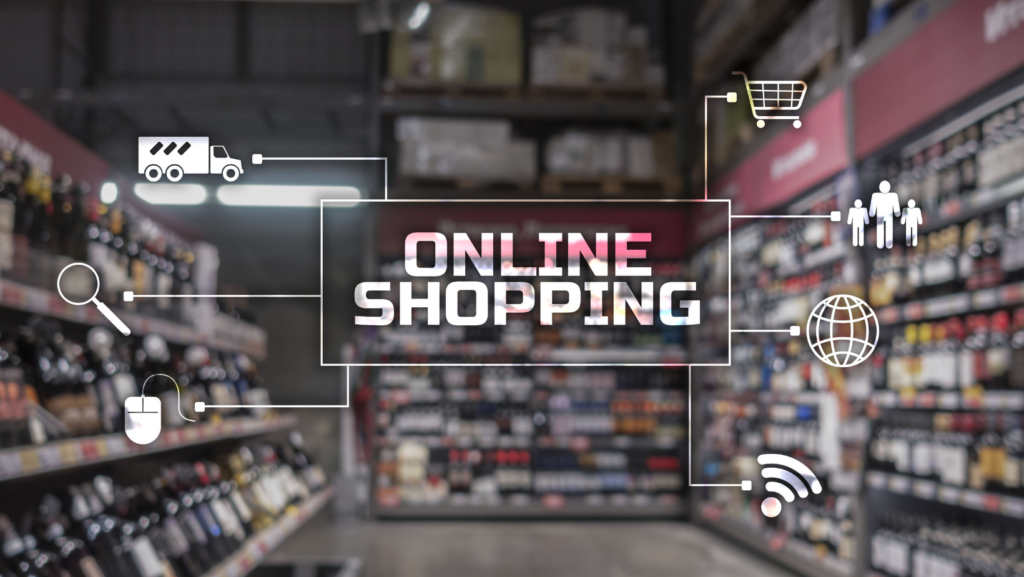Starting a retail business online isn’t just a trend; it’s a powerful way to reach a global market and create a successful venture in today’s digital age. With the right strategy and tools, anyone can turn their entrepreneurial dreams into reality.
Whether you’re a seasoned business owner or a budding entrepreneur, the online retail world offers opportunities aplenty. This article will guide you through the essential of how to start retail business online with steps to launching your own online retail business, from selecting products to marketing your brand.
So, if you’re ready to take the leap into the exciting world of online retail, let’s get started. Your journey towards building a thriving online business begins here.
How To Start Retail Business Online
 When embarking on how to start retail business online, it’s crucial to master the rudiments. Grasping the basics involves comprehending online retail models and recognizing a suitable niche.
When embarking on how to start retail business online, it’s crucial to master the rudiments. Grasping the basics involves comprehending online retail models and recognizing a suitable niche.
Online retail models dictate how products are sold and delivered. Predominantly, three models exist: dropshipping, warehousing or wholesaling, and making products. For instance, in dropshipping, the retailer doesn’t maintain items in stock but passes customer orders to a manufacturer or wholesaler, who dispatches the goods. In contrast, warehousing requires the retailer to store, manage, and ship products that can often be bought wholesale at discounted prices. Lastly, the production method involves creating and selling self-made products. This offers a distinctive appeal to discerning buyers looking for unique deals.
Identifying Your Niche
Finding a distinct niche involves pinpointing a specific product category and leveraging it to effectively reach a target audience. Examples such as handmade crafts, tech devices, or sustainable products demonstrate proper niche selections. Engaging in market research can assist in finding a promising niche. A chosen niche should demonstrate market demand, exhibit room for growth, and correlate with the retailer’s passions or interests. Knowledge of the basics ensures a solid foundation for launching a prosperous online retail business.
Planning Your Online Retail Business
 Significant effort shapes a successful online retail business. Enlightening planning stages aid in turning entrepreneurship dreams into reality.
Significant effort shapes a successful online retail business. Enlightening planning stages aid in turning entrepreneurship dreams into reality.
Crafting a business plan ranks as an initial crucial step in the planning process. Business plans detail the business’s objectives, confront potential challenges, and suggest solutions. For example, an online retail business plan sketches the type of products to sell, identifies the target market, and pinpoints the marketing strategy. Additionally, it outlines the operational process, including sourcing merchandise, managing inventory, delivering orders, and handling customers’ considerations. Thus, a comprehensive business plan guides one through the process of launching and managing their online retail business.
Researching and Understanding Market Demand
Investigating and grasping market demand forms another integral part of planning how to start retail business online. Entrepreneurs must identify a suitable niche that balances their interests and a proven market demand. For instance, if an entrepreneur has interest in selling handmade jewelry, they’d research competitors, price range, target population, and their purchasing power before determining the viability of the product in the market. Utilizing resources such as Google Trends, Amazon Best Sellers, and other market research platforms can offer insights into product demand and potential selling price, assisting in the decision-making process for product selection. Thus, thorough market research propels one towards selecting profitable products that align with market demand, ultimately shaping a prosperous online retail business.
Building Your Online Store
 Transitioning seamlessly from the planning stage, it’s time to construct your online retail store. The two critical elements governing this process are selection of the ideal e-commerce platform and creation of an engaging user interface.
Transitioning seamlessly from the planning stage, it’s time to construct your online retail store. The two critical elements governing this process are selection of the ideal e-commerce platform and creation of an engaging user interface.
Selection of the correct e-commerce platform forms the backbone for the prosperous operation of an online retail business. It aids in managing product listings, handling payments, fulfilling orders, and supporting customer service. Several platforms such as Shopify, Magento, WooCommerce, and BigCommerce lead the market. However, identifying the one fitting your business requirements is key — assisting in maximizing potential gains with minimal friction.
Designing an Engaging User Interface
Designing an engaging user interface goes beyond delivering aesthetic appeal. It ensures optimum user experience by providing ease of navigation, fast load times, and clear product information. A well-designed interface directly influences browsing behavior, thereby increasing the chances of a sale.
Professional platforms offer a variety of pre-designed themes. For instance, Shopify encompasses an extensive library of fully customizable themes, perfect for a broad range of retail sectors. Alternatively, business owners can opt to engage a professional web developer to create a unique interface tailored to their specific niche.

